A World Full Of Wildlife and How You Can Protect It – Book Review
Written & Illustrated by Neal Layton
Published by Wren & Rook ISBN: 978-1-5263-6323-7
Reviewed by Karl Andy Foster
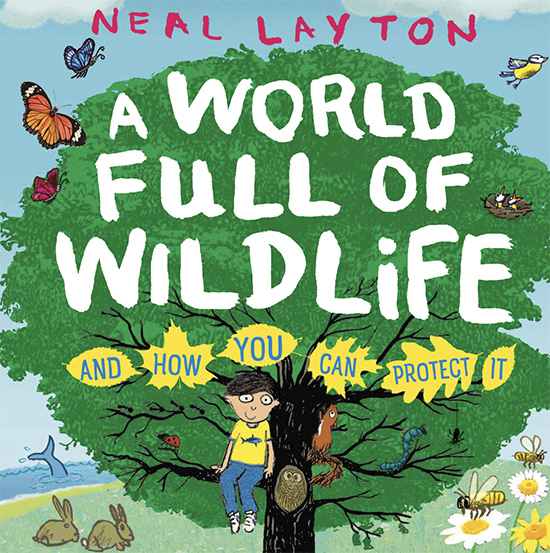
This book was inspired by Sir David Attenborough, who said: “No one will protect what they don’t care about, and no one will care about what they have never experienced.”
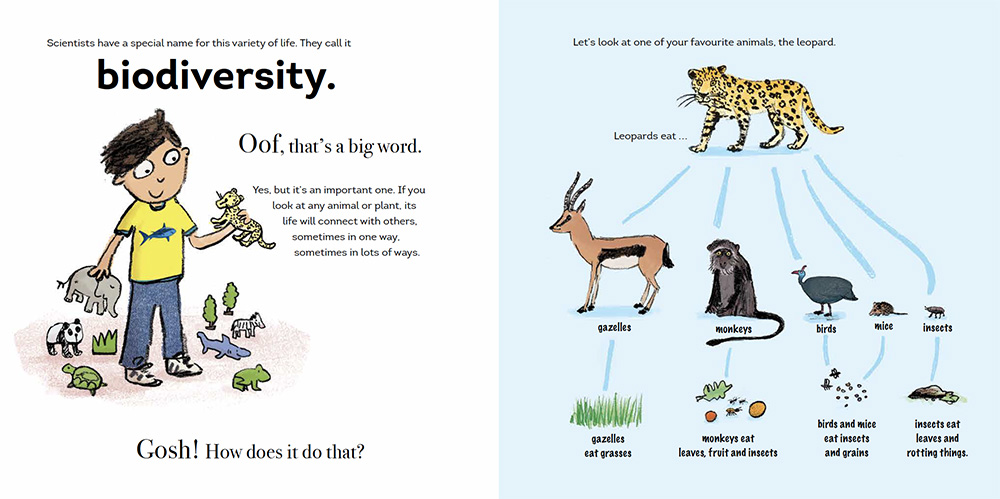
How do you communicate complex ideas and inter-related biological systems to young children? How do you convert ideas into long lasting actions? Author and illustrator Neal Layton accomplishes all of this in his new picture book. He understands that children love nature, they want to engage with ecology and these passions can be harnessed for good.
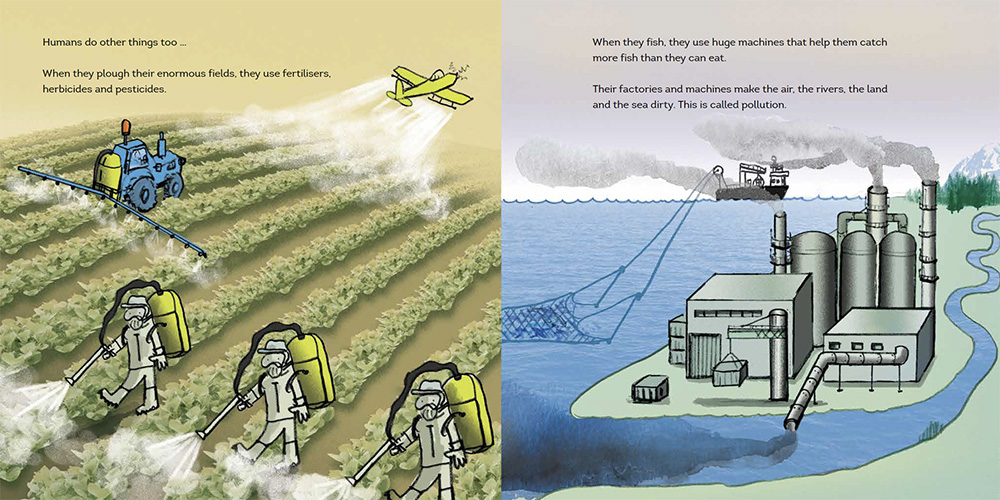
The first part of his story acts to raise awareness in the reader. We find out the common terms used to describe our wild world and where they need to be applied. I liked how we are shown Biodiversity, the Web of life and how important the smallest organisms are to these systems for them to work optimally. The second part provides us with the means to make a difference. The most important point is to show what nations are doing to change things, the fact there is a global effort to improve matters. The powerful are acting and you can help them is the clear message that we are left with.
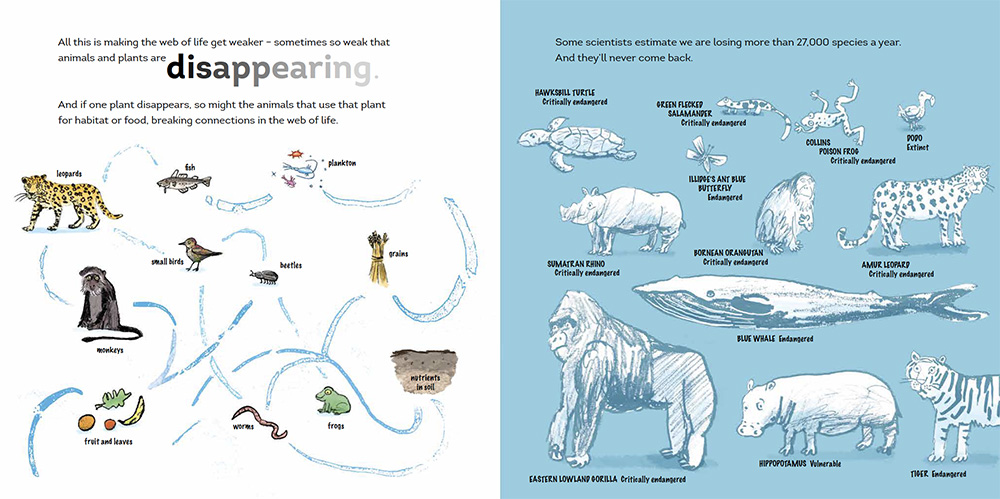
Layton’s illustrations are bold, sophisticated, loose, dynamic using bold colours and photo-collaged elements to good effect. He can transport us to a variety of locations and landscape types using humour and upbeat mark making. He can capture the essence of a creature without it having to be perfectly rendered. Things look a bit odd, but they are where they need to be 100%. His drawings aid his cause (I’d like to see his work on activity sheets as this I feel would add visual and creative energy to a set of instructions for children). The cover is dominated by a huge tree with the book title boldly displayed inside its corona. A young child sits next to an owl and a squirrel. They seem at peace. The back cover shows an urban scene which is an important factor as most human populations live in built-up areas. The end papers are striking in their depiction of a range of animal tracks that could disappear if we fail to act.
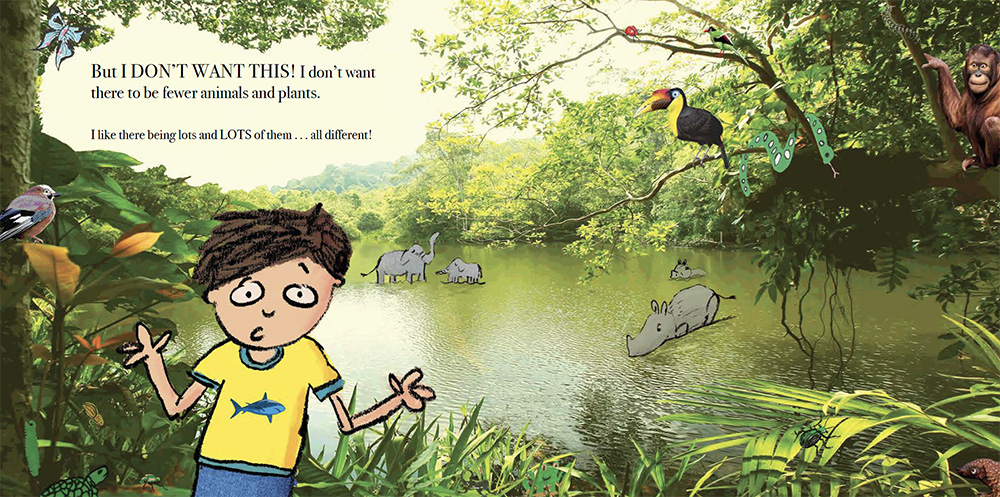
The final two pages of the story invite children to take part in protecting wildlife in 5 steps, and they are introduced to other children who are making a difference. The Glossary is a fine addition as there are words in the text that will be new to many. The content is backed up by scientific research and data from those who understand the natural world. At no time do Layton’s words appear preachy or extreme in the face of this crisis. He has provided us with the tools for gentle activism and it is up to us to do the right thing?
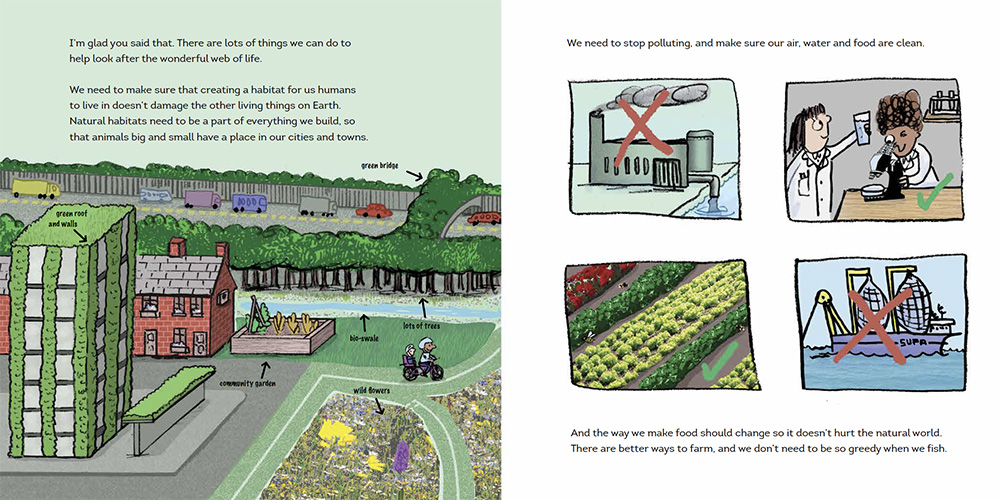
Back to News Page
